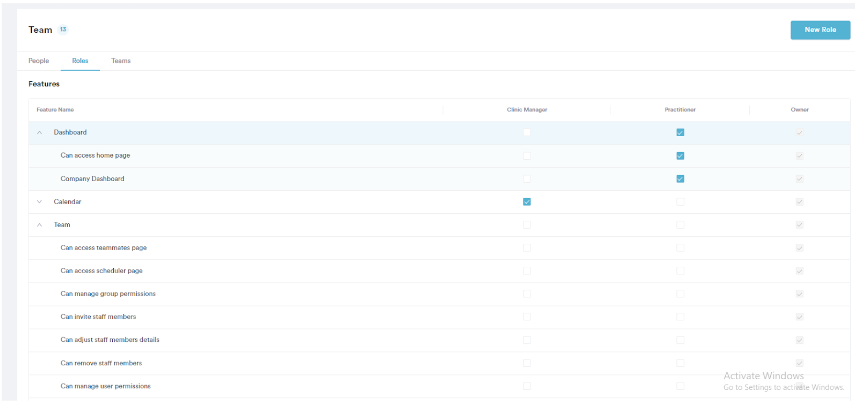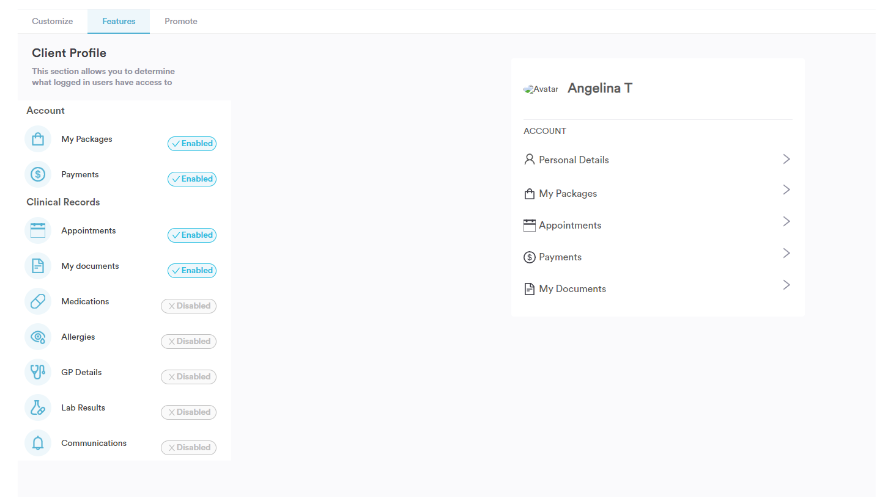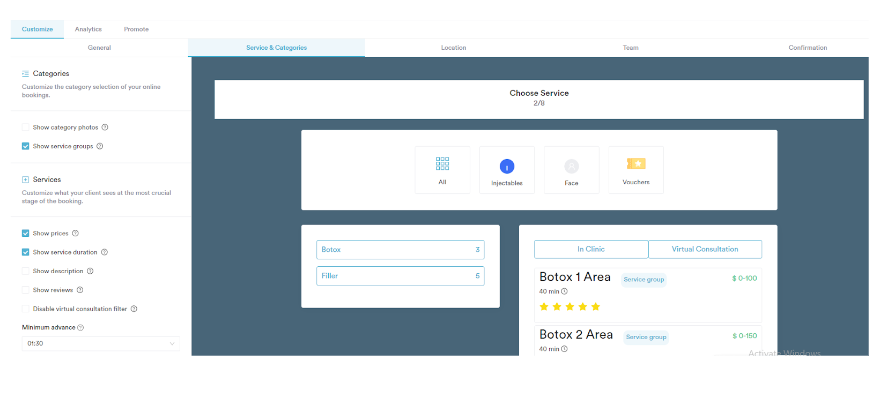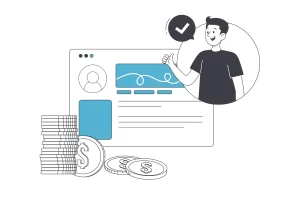A decade ago, running a successful clinic would have come down to the quality of service you offer. But a few years later, in the age of telehealth and managing large data volumes, providers have another success factor to consider — patient data security.
Over the past few years, around 93% of healthcare businesses faced some form of data breach. Even the slightest data breach can lead to patient identity theft and fraud and will hurt both your brand image and patient trust.
🚨In fact, recuperating from a data breach can cost clinics up to £3.2 million — that could have been easily repurposed.
Now, to shield your business from unforeseen data exposure, Pabau has built a frontline of features that secure sensitive information without sacrificing the patient’s health journey — or your business reputation.
Pabau’s Security Features for Patient Data Protection
Due to cybersecurity issues, 70% of healthcare businesses experienced longer patient stays and overall delays. So it’s safe to say that data protection is time-critical, too.
Here are the features Pabau uses to ensure maximum health and patient data security.
🚧 Customizable Staff and Patient Permissions
Pabau 2 permissions are a huge security asset to rely on when handling patient data. We offer highly customizable permissions that can be ticked and unticked to grant or revoke team members’ access to the data they need.
The account owner manages permissions in Pabau 2. You can add system permissions for team members (practitioners and managers), as well as patients.
Manage team permissions
Use the Roles feature in Pabau to give staffers permission to various areas — dashboard, team calendar, leads, clients, analytics, stock, marketing, money, activities, and setup.
For example, by ticking and unticking different permission boxes, you can allow or prevent your practitioners or managers from booking appointments, accessing reports, creating clients, accessing the home page, seeing or raising invoices, etc.
Here’s what that looks like in Pabau 2:

You can manage patient permissions in two ways:
1. Client Card permissions
Click Setup→ Client Portal→ Customize→ Features. Here, you can enable/disable permissions for patients and allow them to add their meds, include allergies, see prescriptions, invoices, EMR, and more — all in one place.

2. Online Booking permissions
Click Setup→ Online Bookings→ Customise→ Services & Categories. Here, you can manage general, service & categories, and location & team permissions — deciding what patients see on their online booking confirmation.
For example, you can hide/show: patient/team member photos, practitioners’ job titles, the service or product costs, clinic reviews and descriptions, etc. Also, use this space to customize the style, format, and colours of the booking confirmation patients receive.
Here’s what that looks like in Pabau 2:

⚠️ Keep in mind: Pabau 1 and Pabau 2 have different permissions
Practices that use Pabau 1’s permissions but want to transfer to Pabau 2 will have to re-integrate their permissions. Once you’ve migrated to Pabau 2, you will have full permissions access, even if those permissions were not active in Pabau 1. For more permissions assistance, contact Pabau’s support team — or book a demo.
🆔 Two-factor Authentication (2FA)
Two-factor authentication (2FA) reduces the risks of data exposure by securing the client’s login details. Studies show that adding a phone number to a Google Account alone will prevent up to 100% of automated hacking, 99% of phishing and 66% of targeted attacks.
For example, if a patient’s account password has been compromised, they’ll still be able to sign in through a secondary channel, typically via an SMS. Without approving this 2FA authentication, nobody can access the client’s logins.
Pabau’s 2FA authentication feature gives account access only to the account owner. You can purchase SMS credits and use them to receive an authorization code, logging in securely — wherever, whenever.
For the smoothest 2FA experience, we recommend you use the mobile Google Authenticator app. For extra protection, you can set up an SMS code expiration period.
💳 Patient Payment Data Security
For the highest level of PCI DSS (Payment Card Industry Data Security Standard) compliance and the most secure card transactions, Pabau integrated Stripe.
Stripe is among the biggest global payment tools, with 3,388,191 websites using it.
Stripe adds various extra layers of security for patient data. Not only it encrypts all patient card numbers, it also prevents its own internal systems from accessing the data.
Plus, Stripe only enables secure payment processing via HTTPS/TLS. And because it is PCI DSS compliant, Stripe safely manages and stores cardholder data.
📸 Patient Photos Data Security
Pabau allows clients to automatically upload patient photos to their client records.
Featuring patient photos in your EMRs (Electronic Medical Records) can boost the patient experience. Using images, practitioners can quickly identify patients and reduce patient product, diagnosis, or treatment errors, especially in case of an emergency.
Pabau’s EMR system securely stores patient photos, health status, diagnosis, consent forms, lab tests, lab results, etc. You can review and approve their photos, and obtain a patient consent form before sharing them.
When photos are uploaded to our software, Pabau will use an advanced ‘sensitive image detection’ tool and notify you of any images you might want to keep private.
That way, sensitive patient photos can be set to be visible only to those who need them.
📅 Linked Third-party Apps
Sharing API keys — the codes used to identify and authenticate apps or users — with linked third-party apps puts your clinic’s security at a higher risk. When and if needed, you can use Pabau’s software to share, limit, and disable them. Or, you can restrict third-party app access to these API keys, and secure all sensitive data.
📱 Authorized Devices
Another way Pabau enhances patient data security is by authorising account devices. Before gaining access to a Pabau account, an admin user must approve the device used.
When a non-admin user tries to log in from a new device, they’ll receive a ‘no-access’ message. To access a Pabau account, non-admins will have to obtain a 4-digit ‘Admin Authorization Code’ from the admin to log in.
Additional Patient Data Safety Measures
Pabau takes an extra step to protect and secure all your patient data, via:
✔️ Ongoing monitoring. Pabau supervises at all times. In case of an issue, we’ll be the first to know and respond accordingly, using a refined early detection system.
✔️ Backups. Pabau’s system is backed up daily, and the files are stored across various safe locations. All files are also backed up for six months from the current month. This helps restore altered or accidentally deleted patient data.
✔️ Multiple protection policies. Pabau implements strong password policies, as well as session timeouts and automatic sign-outs every 24 hours.
✔️ ‘Sensitive data/email’ feature boosts security when processing patient information.
🔗All-around Encryption
Around 7 million unencrypted data records are compromised each day. To prevent the issue, by 2020, 56% of organisations have fully encrypted their online businesses.
Encryption is a process Pabau has incorporated since the start. We use top-tier encryption to secure patient files, including photos, videos, alerts, and patient data.
We also offer high-level security hosting and carry out regular in-depth controls.
To protect patient data, and other data you keep in our software, we use encryptions:
- HTTPS (End-to-end encryption) – secures data transit and prevents third parties from accessing patient data as it travels from one system to another.
- SSL Technology Protocols. This is standard technology for encrypting data sent between servers or browsers. The 2048-bit SSL encryption prevents hackers from obtaining patient data and ensures a safer website experience.
- PCI DSS Level 1. This encryption secures credit card and payment information while reducing the risks of fraud and credit card information theft.
- ISO 27001 ISMS. This global standard for secure information management helps practices overcome unforeseen security breaches concerning technology, patients and employees, and system processes.
- FIPS 140-2 is a US information processing standard, used by federal bodies as a way to protect sensitive data from being compromised.
- AES-256 encryption. This highly secure algorithm is used against aggressive hacker attacks. It is the official standard for securing sensitive information, fit for various devices and platforms.
🤞 Don’t recoup ever again — Pabau’s encryptions prevent ANYONE from accessing, stealing, or mishandling your business and patient data!
Pabau’s Data Security Compliances
Pabau secures your sensitive data via various compliances. Here’s why you need them:
Patient ID data is a high target for hackers:




